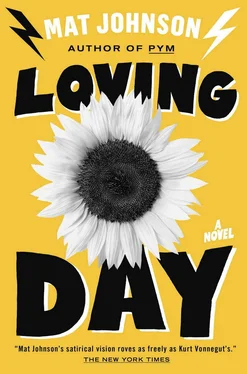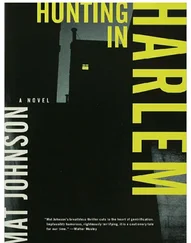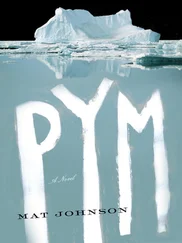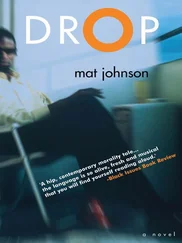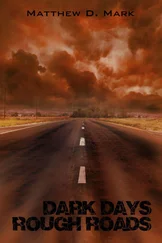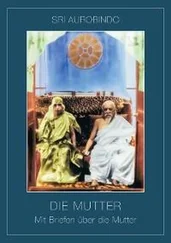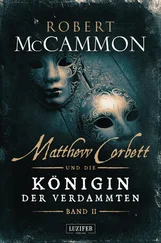“I’m sure she will be fine. At Umoja, we teach our young men to be gentlemen, the future leaders of tomorrow.”
“Sir, I’m sorry. I don’t know what Tosha told you about Tal. This is all, y’know, new to her. To me. It’s an odd circumstance. And Tal’s only really known about her identity, her blackness, for a few—”
“Not uncommon at all, brother. Not. At. All. We get a lot of parents through here, they got these kids today, they’re disconnected. Disconnected from the soul. All they know about being black is what they see in music videos. That’s part of why we’re here. To teach. To repair.”
I like what I am hearing. There is a weight, so quickly laid upon me, that I feel magically lifting now. I imagine a life as he keeps talking. I see Tal and I rising together every morning, her donning her dashiki, me cooking her organic free-range eggs as she prepares for school. I see me giving her a ride to the door of this building, a converted Victorian mansion itself, and then returning to my father’s to draw more pages to pay the bills before the great fire and the resulting windfall. At the end of the year, she will graduate and I will burn the house to the ground, using the insurance money for her college tuition. And then maybe I will follow her to whatever city she escapes to, far away from the charred ruins. Maybe to London. Forget Team Black, Team White, just join Team Not From Here again. She’ll bring her friends over to our flat and I’ll be the cheery but slightly aloof cool dad.
“We teach them African history — the real history, not the lies in most history books. In language we offer both Swahili and Igbo.” His head is mahogany, round, shiny. While other people comb their hair, he must spend that same time rubbing his scalp with Muslim oils. “African philosophy, African mathematics, African food. The point is, we remove the toxins of Western decadence and replace it with purity. We make them whole.”
This sounds basically fine. Why not? I’ve had a lot of European toxins in my life — weed vacations to Amsterdam, drunken club-hopping in Ibiza — and it hasn’t worked out that well, has it? I would like to be whole, too. And I am currently trying to remove the European toxin of Becks, so I can sympathize. There is paperwork to do. There are transcripts to be sent over, but from the way Kamau is talking, it sounds like we have a completed agreement. I shake his hand, follow it through all its brotherman finger gyrations, and even though a part of me thinks he just gripped me like that to see if I was truly black, I don’t care. A victory has been won. An education will be received. Blackness will be restored.
When I finally get out, Tal’s not in the waiting room. I hear a rhythm beating, and I go to a window that overlooks the courtyard below. There’s a drum circle, with adults at the center banging away hard enough to make the glass shake under my hands. The students have formed a ring around them and now take turns dancing the circumference one at a time before taking their place again.
I see my daughter instantly amid the class, her skin a blanched beacon, the lightest among them. There is an elegance in the movements of each kid’s cakewalk, evidence that they have done this before, that this is a school ritual. I watch them dance in their uniform of dashikis and khaki pants, and then quickly excuse myself and head for the stairs to pull her out of there. I do this before Tal can mess this up. Before she can dance like a white girl and make a fool of herself on her first day of school.
By the time I get out to the yard, I’ve reconsidered. My thoughts about my own daughter’s racial identity are prejudiced and false, even though I still believe them. I’m too proud to admit it by pulling her out of there, where other minds might be thinking the same thing, will know exactly why I extracted her. That I’ve created a white girl. So I just stand there, at the outer edge of the crowd, watching. Tal’s talking to that boy, who hovers beside her. They both clap along to the beat as he leans in close enough to whisper in her ear. Seeing her respond to his smile, his flirtation, his perfectly groomed thin baby mustache, my newfound fatherly protectiveness is second to my relief that my daughter may have found motivation to attend the school.
Tal’s turn comes last, and I expect her to demure, to shake her head “No” and let them finish, but she just thunders out the moment the girl next to her prances back. And, in the circle, Tal jumps. Her hands go high as she erupts out of the center, and like a sheet falling lightly on a bed she comes down into a split on the ground. Tal’s legs divided on the asphalt; she is as long there as she is tall. A new fear rises, that she is acting like an uppity high-yellow show-off, but it quiets at the site of Tal’s joy at springing up and giving in to the momentum of her twirl. The drums go louder when she leaps, the crowd claps louder and hoots and there’s a “Go on, girl!” at every peak. When Tal does her final split, back at her spot, the drums crescendo to the finish, where they are met and replaced by applause. I get another new father feeling: pride. But it’s muted by an even larger realization. That is how my daughter looks when she really smiles.
“She shouldn’t be jumping up,” Principal Kamau says, walking beside me and handing me the application papers.
“I’m sorry,” I tell him, a mix of regret and confusion.
“That was a good start, but she shouldn’t be jumping up so much. We’ll teach her. Jumping up, that’s the European mind-set, you see?”
“Yeah? I’ve seen African dancers jumping before,” I say, because I can’t help myself, because that’s my daughter. And I know I’ve seen African dancers jumping before.
“Sure, but not, not like that .” The principal shakes the bitter taste of the memory out. “See, the European mind-set, it’s about distancing oneself from the planet, so their dancing is all about trying to jump away from it. It’s arrogance, really. It says, ‘I’m better than mother earth, I fly off of you because you’re beneath me.’ The African aesthetic is connected to the soil, see? So less of that flapping around like a pigeon. The dance moves down, to the source, because it has humility. It loves the mother earth.”
“I totally love the mother earth. I only eat organic.” Tal stands before us. She’s with the boy. It only occurs to me now that she found the lightest-skinned guy out here to make her new friend.
“Don’t worry, brother.” Kamau slaps my back, ignoring her, nods a smile at her before heading inside. “You take care of the paperwork, we’ll take care of the cure.”
“A cure? What the hell is his problem? I’m not sick; I’m classically trained. Why are blacks so sensitive?” Tal is intentionally loud for everyone to hear. Kamau stops at the building’s door. He looks at me. I’m responsible.
“What? I didn’t say ‘the blacks’ this time. Oh, am I supposed to say ‘African American’ now?”
“There’s no such thing as ‘classical,’ ” I can hear myself snapping at her, loud enough for people to listen. “That’s just the way white people say ‘European.’ It’s subtle white supremacy. Don’t use it anymore.” I look over. My statement relieves some of Kamau’s facial pressure. Still, the door slams a little when it closes.
“Oh hell no. I’m not going here. Dad. That guy is so crazy, he’s racist against jumping .”
“That’s not what he — look, you’ve been to the Jewish school, right? Your whole life. So are you going to tell me you can’t do an eight-month stint learning about who else you are? Is that it?” I can hear my voice rising. The kids around us are now running through their recess, screaming louder, so I’m covered.
Читать дальше
